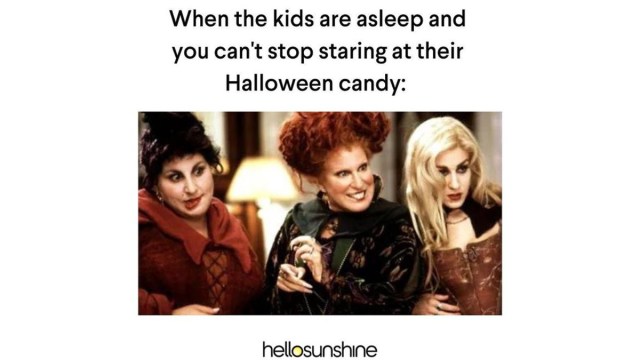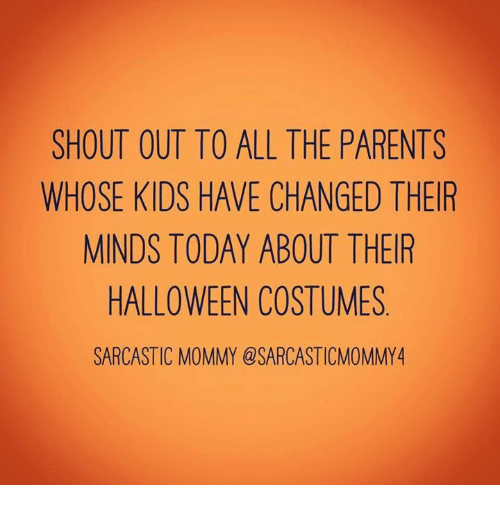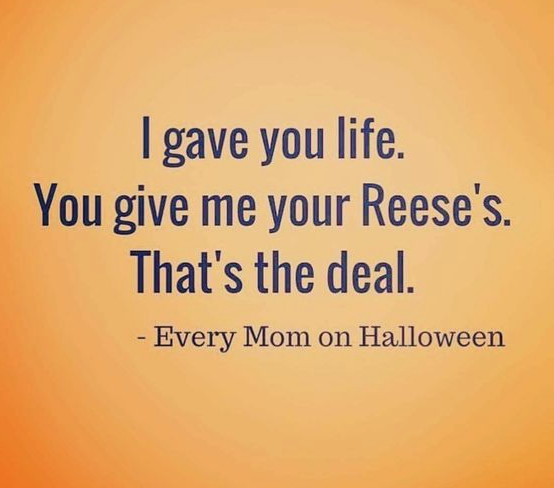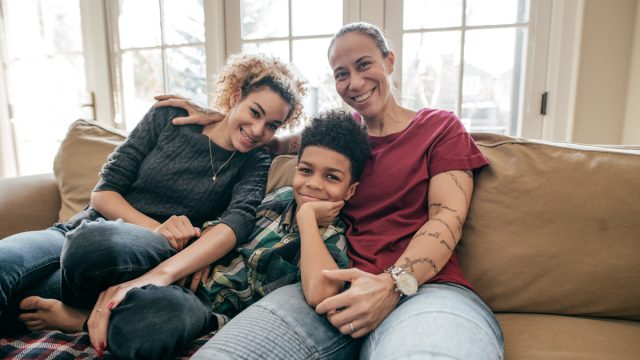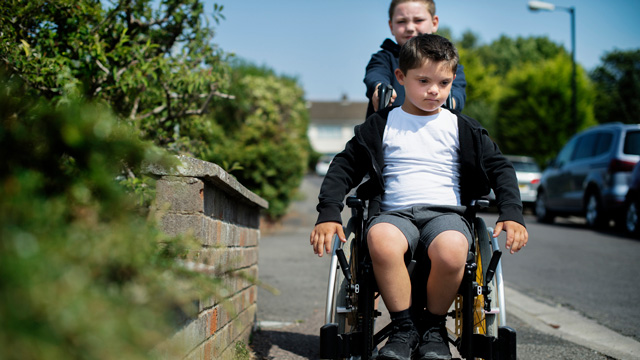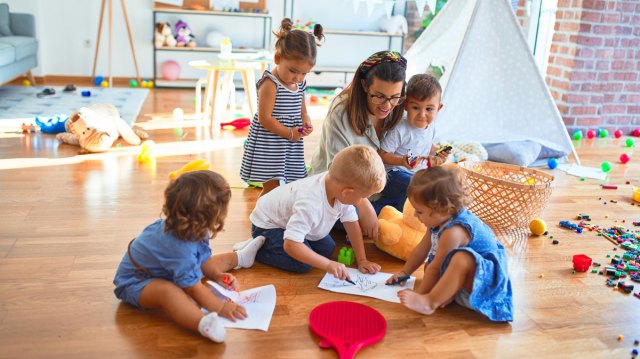What we say to girls matters. “Our daughters script their stories, at least partially, on how we write them,” says speaker and author Dr. Jody Carrington, Ph.D. “Showing them how we want them to show up in the world while using words that empower them–like “leaders” who are kind and clear, confident, reflective, and responsible—is what they need from us, now more than ever.” While we need to know the phrases that empower the next generation of women, it’s also good to learn what not to say to your daughter.
1. Boys will be boys.
This old-fashioned response to a girl expressing her dislike of a boy’s behavior is toxic. Girls should be taught from a young age that boys shouldn’t get away with unacceptable actions due to their gender. Parents can show their daughters that they take these issues seriously by listening with empathy and taking steps to change the situation.
2. You got lucky.
A Center for Creative Leadership study found that “nearly ½ of all women interviewed attributed their success to ‘luck’ compared to only ⅓ of men.” If we want girls to grow into women who own their achievements, we need to celebrate the work they put into achieving their goals. Did your girl ace her last test? Tell her you’re proud of the way she studied for it. Did she learn a new song on the piano? Celebrate her commitment to regular practice. The more we connect girls’ achievements to their efforts, the easier it will be for them to avoid impostor syndrome as adults.
3. Stop being so bossy.
Telling a girl she’s ‘bossy’ feeds into the stereotype that only boys get to be assertive and girls should be quiet and retiring. Instead, celebrate that she feels confident enough in her opinions to instruct others. Say something like, “You’re so good at making plans for games! Remember that your game should be fun for everybody. Let your friend make some decisions too.” This helps her hone those emerging leadership skills.
4. You would be a lot prettier if you smiled more.
This phrase implies that your daughter’s feelings are less important than looking attractive to everyone else. If you’re worried that your daughter’s overall outlook on life is negative, find ways to discuss the issue without connecting it to her appearance or likeability. “Knowing that they are loved as they help with building self-belief and confidence, especially when others around them are being unkind,” says Dr. Angela Low, a researcher at Child Health BC.
Discuss the long-term consequences of focusing on the negative in every situation. Negative people miss out on the good things in the world because they fail to notice them. Consider starting a gratitude journal with your daughter. Or have her tell you two positive things about a situation every time she says something negative. You’ll not only help her notice the good details in life but also help her regulate the stories she tells herself.
Related: 10 Times Your Daughter Shouldn’t Say Sorry
5. Get to the point.
If your daughter shares details about her day-to-day life with you, consider yourself lucky. “Resilience researchers study kids that thrive despite difficult circumstances. These kids have one thing in common–a trusted adult who they believe loves them unconditionally,” Dr. Low says.
“Knowing that an adult has their back no matter what means that they have somewhere to go to seek advice and counsel, when life gets a little overwhelming, or when they make mistakes (as we all do).” Show you’re there for her, even if you’ve heard enough about YouTube and TikTok to last a lifetime. Listen to her now so she will open up to you when it’s crucial, later. If you absolutely can’t listen right away, try saying this: “You’re important to me, and I want to focus on what you have to say. Can you wait for me to finish this task so I can listen to you?”
Related: This ‘5-Minute Rule’ Ensures Kids Will (Almost) Always Tell You the Truth
6. Look how well your friend/sibling does XYZ.
In this era of competitive parenting, you might find yourself looking at another child who is a better dancer, student, athlete, etc. But telling your child they don’t do XYZ as well as another kid is harmful. It leads kids to feel “less than” which leads to low self-esteem, anxiety, and other issues. Remember, there’s always going to be someone who does something better than all of us, and it’s better to point out their strengths or guide them to the things that interest them, not what might just look good in a social media feed.
7. You should go on a diet.
Want to know how to talk to your daughter about her weight? Don’t. Instead, teach her how her body works and what types of food and exercise make her body healthy, strong, and well-nourished. Make sure she knows that the bodies she sees in magazines and social media have been digitally edited to achieve that look. Talk about society’s pressures on women to look a certain way, even though bodies come in all shapes and sizes.
Compliment her for the things her body can do. And make sure you talk about how proud you are of the things YOUR body can do. If she sees you loving your real-world body, it will be easier for her to develop a healthy relationship with food.
8. That’s not for girls.
It’s the 21st century, y’all. Women are achieving amazing things in sports, business, and the sciences. Encourage your daughter to pursue her dreams regardless of whether her aspirations are in traditionally male-dominated areas or not. Worried that she may run across people who treat her unkindly because they don’t think girls should apply? You can help her navigate any future challenging circumstances now. Connect her to training, sponsors, and networks that can support her goals. This will build her self-confidence and resilience as she pursues her ambitions.
—with additional reporting by Beth Shea






